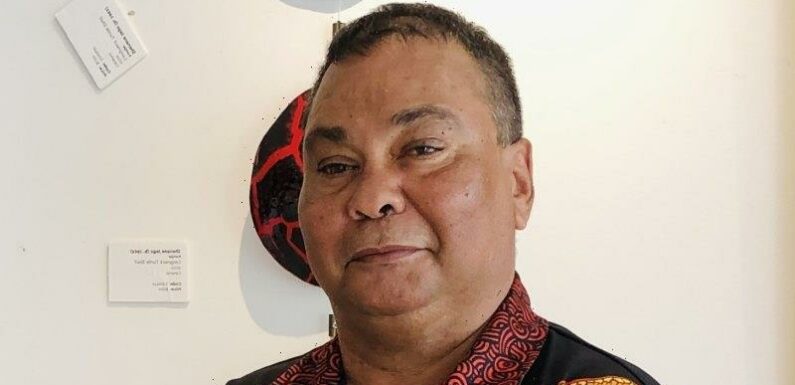
Prominent Indigenous leaders from the southern Gulf of Carpentaria have urged Prime Minister Anthony Albanese to give the public more information about the Voice to parliament and even delay it, warning failure could set back First Nations people’s rights for generations.
Mangubadijarri Yanner and Fred Pascoe said the Voice could not be driven by politics, arguing it needed to focus on economic outcomes for Indigenous communities across the country.
Indigenous leader Fred Pascoe said there were substantial risks from pushing the Voice referendum too quickly.
Yanner, chair of the Gangalidda and Garawa Native Title Aboriginal Corporation, and Pascoe who is a former mayor of the Carpentaria Shire, are members of the Gulf Regional Economic Aboriginal Trust.
They said while they could understand the Albanese government’s intent with the Voice, it was undeveloped to the point it could easily fail.
Debate started in the federal parliament this week on the government’s bill to amend the Referendum (Machinery Provisions) Act 1984 under which the Voice referendum will be conducted. The Coalition has confirmed it will oppose the legislation unless the government agrees to establish official Yes and No campaigns with equal public funding – something Albanese has ruled out.
The machinery bill is the first of the legislative hurdles the government must clear before it can hold the referendum to enshrine the Voice in the Constitution in the second half of this year. Albanese says it will be up to parliament to decide crucial details after the vote while Opposition Leader Peter Dutton has called for more information before the referendum. The Nationals oppose it.
An exclusive Resolve Strategic poll for The Sydney Morning Herald and The Age last month found public support for the Voice had slipped over recent months, to 58 per cent, while 63 per cent of voters said they would like more information than was currently available.
Yanner said while he personally supported the Voice, there were substantial economic risks for regional and remote Indigenous communities if the referendum failed.
He said if done properly, the Voice would be a catalyst for financial change across Indigenous communities as people finally had some say in their economic direction. But if not, that chance would be lost for years.
“Getting a strong economy gives people a reason to get out of the bed in the morning, to be able to look after their family, to have a car, to be able to buy Christmas presents for their kids,” he said.
“We haven’t had a say in our communities for 250 years, so the Voice is a chance to have a say. But we can’t rush it if it’s not right.”
Pascoe, who said he supported the Voice in concept, warned there would be long-term repercussions if the referendum failed.
“It could be a lifetime, it could be two lifetimes, before we get another chance at this. So taking more time now explaining it could save us,” he said. “If we do this wrong, the impact will be intergenerational.”
Albanese, in a speech to the National Press Club earlier last month, said policy and economic outcomes should improve under the Voice as it would ensure the views of Indigenous Australians were heard directly by MPs.
He said across community safety, education, employment and life expectancy, Indigenous people suffered poorer outcomes. This was partly due to policies being imposed from Canberra.
Both Yanner and Pascoe have been heavily involved in boosting the economic prospects of Indigenous people across the southern Gulf region.
Pascoe said people with an understanding of the economic issues and needs of rural and remote Indigenous communities had to be at the centre of the Voice if it was established.
“If this is going to be dealt with just from the political side, it’s not going to work. It needs to have an economic focus,” he said.
“You can’t just look at it from politics. You need to have people with on-the-ground economic knowledge and experience.”
Yanner said getting the form of the Voice right would also be pivotal.
He said without a Voice that was listened to, the economic benefits that could flow to Indigenous communities would be lost.
“It’s not good if it’s not worth its salt,” he said.
Cut through the noise of federal politics with news, views and expert analysis from Jacqueline Maley. Subscribers can sign up to our weekly Inside Politics newsletter here.
Most Viewed in Politics
From our partners
Source: Read Full Article
